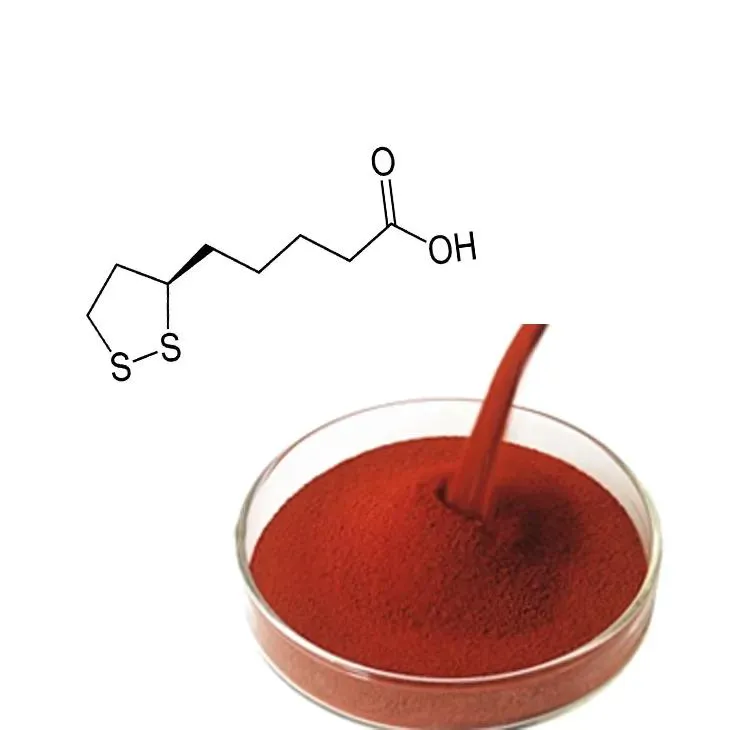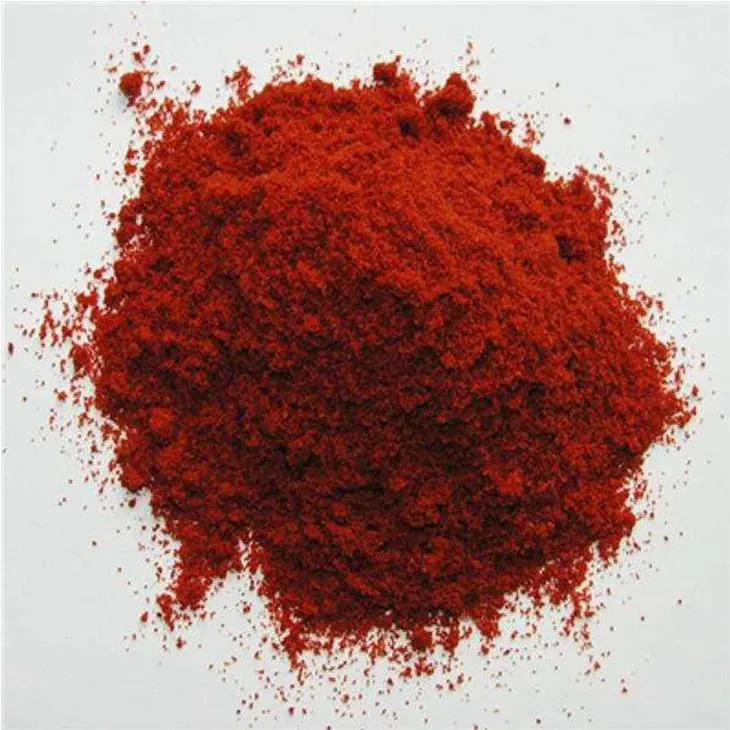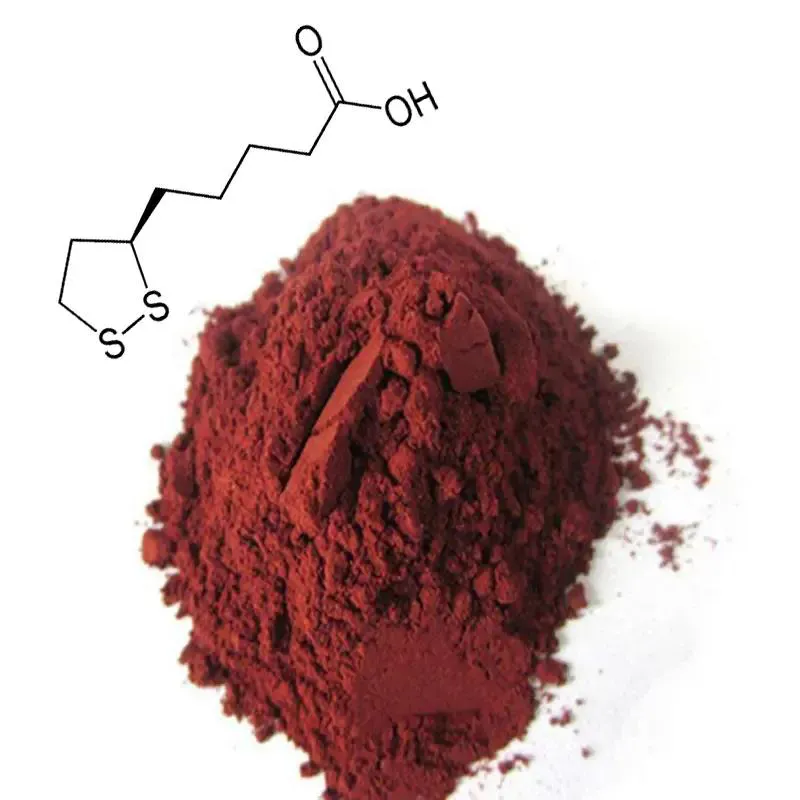- 0086-571-85302990
- sales@greenskybio.com
100% Pure Natural Astaxanthin.
2024-11-27

Introduction to Astaxanthin
Astaxanthin is a 100% natural compound that has been steadily making waves in the health and wellness arena. It is a carotenoid pigment, which gives it a characteristic red color. This compound is found in nature, mainly in microalgae, such as Haematococcus pluvialis, and in certain crustaceans like salmon, shrimp, and krill. These natural sources serve as the primary reservoirs from which Astaxanthin can be obtained for various applications in the health and dietary supplement industries.

The Superior Antioxidant Properties
One of the most remarkable features of astaxanthin is its antioxidant capabilities. When compared to other well - known antioxidants like vitamin C and E, astaxanthin stands out as being far more powerful.
1. Oxidative Stress Reduction
- Oxidative stress occurs when there is an imbalance between the production of free radicals and the body's ability to counteract their harmful effects. Free radicals are highly reactive molecules that can damage cells, proteins, and DNA. Astaxanthin plays a crucial role in reducing oxidative stress within the body. It does this by neutralizing free radicals before they can cause significant damage. This is of particular importance as oxidative stress has been linked to a wide range of chronic diseases, including heart disease, cancer, and neurodegenerative disorders such as Alzheimer's and Parkinson's diseases.
- Scientific studies have shown that astaxanthin can penetrate cell membranes easily due to its unique molecular structure. This allows it to reach areas where other antioxidants may not be able to access, providing comprehensive protection against oxidative damage at the cellular level.

Benefits for Skin Health
Astaxanthin also offers numerous benefits for skin health, making it a popular ingredient in many skincare products.
1. Protection Against UV - Induced Damage
- Exposure to ultraviolet (UV) radiation from the sun is one of the leading causes of skin damage. UV rays can cause premature aging, wrinkles, and an increased risk of skin cancer. Astaxanthin has been shown to have the ability to protect the skin from UV - induced damage. It acts as a natural sunscreen, absorbing and scattering UV rays, thereby reducing their harmful effects on the skin.
- In addition to its direct UV - blocking properties, astaxanthin can also enhance the skin's own defense mechanisms against UV radiation. It can stimulate the production of antioxidant enzymes in the skin, which further helps in neutralizing the free radicals generated by UV exposure.
2. Promotion of Collagen Production
- Collagen is a vital protein that provides structural support to the skin, keeping it firm and elastic. As we age, the production of collagen in the skin decreases, leading to the appearance of wrinkles and sagging skin. Astaxanthin can stimulate the production of collagen in the skin cells. By promoting collagen synthesis, it helps in maintaining the skin's youthful appearance, reducing the signs of aging such as fine lines and wrinkles.
- Moreover, astaxanthin can also improve the overall texture of the skin. It can enhance skin hydration, making the skin look smoother and more supple. This is beneficial for individuals with dry or damaged skin, as it can help in restoring the skin's natural moisture balance.

Anti - Inflammatory Effects
Another important aspect of astaxanthin is its anti - inflammatory properties.
1. Joint Health
- Inflammation in the joints can lead to pain, stiffness, and reduced mobility, which are common symptoms in conditions such as arthritis. Astaxanthin has been found to have anti - inflammatory effects on the joints. It can reduce the production of inflammatory mediators in the body, such as cytokines and prostaglandins. By reducing inflammation in the joints, astaxanthin can help in alleviating joint pain and improving joint function.
- In addition to its anti - inflammatory effects, astaxanthin can also protect the joint tissues from oxidative damage. This is important as oxidative stress can exacerbate joint inflammation and damage. By providing antioxidant protection to the joints, astaxanthin can help in maintaining the health of the joint tissues over time.
2. Overall Well - being
- Chronic inflammation has been associated with a variety of health problems, including heart disease, diabetes, and certain cancers. By reducing inflammation throughout the body, astaxanthin can contribute to overall well - being. It can help in maintaining a healthy immune system, as chronic inflammation can suppress the immune response.
- Astaxanthin can also have a positive impact on the digestive system. Inflammation in the gut can lead to problems such as irritable bowel syndrome (IBS) and inflammatory bowel disease (IBD). Astaxanthin's anti - inflammatory properties can help in reducing gut inflammation, improving digestion, and promoting gut health.
How to Incorporate Astaxanthin into Your Diet
There are several ways to incorporate astaxanthin into your diet.
1. Dietary Supplements
- One of the most common ways to consume astaxanthin is through dietary supplements. These supplements are available in various forms, such as capsules, tablets, and softgels. When choosing a astaxanthin supplement, it is important to look for a high - quality product that is derived from natural sources. Some supplements may also contain other beneficial ingredients, such as vitamins and minerals, which can enhance the overall health benefits.
- It is recommended to follow the dosage instructions provided on the supplement label. However, it is always a good idea to consult a healthcare professional before starting any new supplement regimen, especially if you have any underlying health conditions or are taking medications.
2. Food Sources
- As mentioned earlier, astaxanthin is found in certain foods, particularly in seafood such as salmon, shrimp, and krill. Consuming these foods regularly can be a natural way to increase your intake of astaxanthin. For example, wild - caught salmon is a rich source of astaxanthin, as the fish obtain the pigment from the microalgae they consume in their natural diet.
- However, it is important to note that the amount of astaxanthin in food sources can vary depending on factors such as the species of the animal, its diet, and the method of preparation. Cooking methods can also affect the bioavailability of astaxanthin in food. For instance, overcooking can reduce the amount of astaxanthin available for absorption in the body.
Conclusion
In conclusion, astaxanthin is a 100% pure natural compound with a wide range of health benefits. Its powerful antioxidant properties, along with its positive effects on skin health, anti - inflammatory capabilities, and potential contributions to overall well - being, make it a valuable addition to a healthy lifestyle. Whether through dietary supplements or natural food sources, incorporating astaxanthin into your diet can be a proactive step towards maintaining good health. However, as with any dietary change or supplement use, it is important to make informed decisions and consult a healthcare professional when necessary.
FAQ:
What are the main sources of 100% pure natural astaxanthin?
100% pure natural astaxanthin is mainly derived from natural sources such as microalgae and certain crustaceans.
Why is astaxanthin considered a powerful antioxidant?
Astaxanthin is considered a powerful antioxidant because its antioxidant properties are far superior to many other common antioxidants like vitamin C and E. It can effectively reduce oxidative stress in the body, which is associated with a lot of chronic diseases.
How does astaxanthin support skin health?
Astaxanthin can support skin health in multiple ways. It can protect the skin from UV - induced damage and also promote collagen production, which potentially reduces the signs of aging.
What are the anti - inflammatory effects of astaxanthin?
The anti - inflammatory effects of astaxanthin can be beneficial for joint health and overall well - being, but the specific mechanisms are still being studied. Generally, it can help reduce inflammation in the body.
Is it safe to consume 100% pure natural astaxanthin?
When consumed in appropriate amounts, 100% pure natural astaxanthin is generally considered safe for most people. However, as with any supplement, it is advisable to consult a healthcare professional before starting to take it, especially for those with pre - existing medical conditions or who are taking other medications.
Related literature
- The Antioxidant and Anti - Inflammatory Properties of Astaxanthin"
- "Astaxanthin: A Promising Nutraceutical for Skin Health"
- "Natural Sources of Astaxanthin and Their Health Benefits"
- ▶ Hesperidin
- ▶ citrus bioflavonoids
- ▶ plant extract
- ▶ lycopene
- ▶ Diosmin
- ▶ Grape seed extract
- ▶ Sea buckthorn Juice Powder
- ▶ Beetroot powder
- ▶ Hops Extract
- ▶ Artichoke Extract
- ▶ Reishi mushroom extract
- ▶ Astaxanthin
- ▶ Green Tea Extract
- ▶ Curcumin Extract
- ▶ Horse Chestnut Extract
- ▶ Other Problems
- ▶ Boswellia Serrata Extract
- ▶ Resveratrol Extract
- ▶ Marigold Extract
- ▶ Grape Leaf Extract
- ▶ blog3
- ▶ blog4
-
Chinese Oyster Peptide Manufacturers.
2024-11-27
-
The best organic Agaricus blazei extract.
2024-11-27
-
The best organic sugarcane extract.
2024-11-27
-
The best organic cocoa extract.
2024-11-27
-
Angelica sinensis extract
2024-11-27
-
Gynostemma pentaphyllum extract
2024-11-27
-
Peppermint Oil
2024-11-27
-
Fenugreek Extract Powder
2024-11-27
-
White Willow Bark Extract
2024-11-27
-
Oyster Mushroom Extract Powder
2024-11-27
-
Cassia Seed Extract
2024-11-27
-
Beetroot juice Powder
2024-11-27
-
Purple Sweet Potato Extract
2024-11-27
-
Hericium erinaceus extract powder
2024-11-27





















